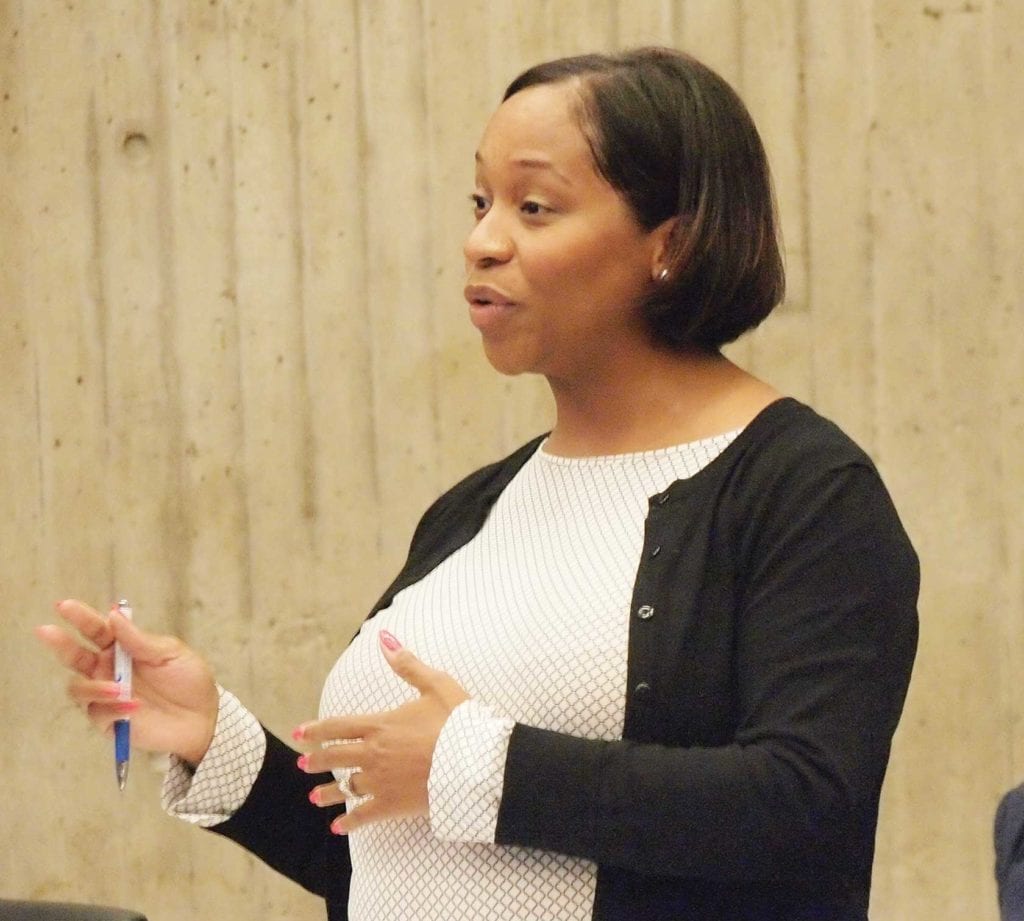
After weeks of backlash from communities of color, the Massachusetts Department of Public Health revised its “crisis standards of care” on April 20. Advocates say that these guidelines, which establish priorities for which patients are given highest priority for COVID-19 treatment, are still not as equitable as they should be.
Boston City Councilors Ricardo Arroyo and Andrea Campbell hosted an online hearing to discuss these guidelines last Wednesday.
“We are here today to say that these revised guidelines are a step in the right direction, but not the final destination on our journey towards true health equity,” said Dr. Alister Martin, a member of the Massachusetts Coalition of Health Equity. The coalition represents 80 physicians across five major Boston hospitals.
Hospital capacity is limited; at some point, doctors may need to decide which patients will receive extended care. The original state guidelines, issued April 7, said that “underlying medical illnesses” would count against patients requiring ventilators or other limited assistance, noted Martin.
The new guidelines have updated language. Nevertheless, patient medical history is still considered when providing care. Patients might not receive a ventilator if they have preexisting conditions, for example.
“These guidelines still do not go far enough to truly protect marginalized populations like communities of color and patients with disabilities,” said Martin.
Hospitals can adopt their own set of guidelines; the health care workers decide on a list of diseases that could dictate whether or not patients are denied life-saving resources, said Martin.
Arroyo said that the original guidelines created point systems based on preexisting conditions, which are heavily impacted by race and socio-economic status, but that the DPH still claimed it was creating a “race-blind system.”
“The update has dealt with some of that, but not all of that,” he said. He added that the guidelines should take race into account in a positive way. Hospitals should make sure that “the social inequities that we see on a daily basis are addressed.”
Campbell agreed, noting that the administration must employ a racial equity lens when thinking about solutions.
“We often are hearing from folks that they don’t want to take race into consideration, that this is not about race, this is not about black and brown,” she said. “And I’ve said plainly: that’s a total mistake.”
Council President Kim Janey noted that the pre-existing conditions plaguing communities of color didn’t just appear. These diseases were bred in “deep poverty,” she said. Underlying conditions like heart disease, diabetes and asthma are all conditions that all affect black populations at much higher rates.
“COVID really is shining a spotlight on existing inequities,” she said.
Dr. Joseph Weinstein, the chief medical officer of Steward Health Care System, noted that discussions on crisis standards are currently hypothetical. Steward Health Care System includes Carney Hospital in Dorchester and St. Elizabeth’s Medical Center in Brighton. Weinstein said that these hospitals have more than adequate capacity to handle patients.
State officials convened a panel of medical professionals to draft the voluntary guidelines for hospitals to use in the event that the number of cases in Massachusetts exceeds the capacity of the health care system to treat them. A shortage of ventilators, for instance, could force medical professionals to make difficult decisions. But Weinstein said that has not yet happened.
“We have not had to deny any patient any form of life-sustaining care, including ventilators, medication or any other life-sustaining treatment,” he said. “We have been more than able to handle the capacity.”
Weinstein said that health care workers have been strategic in acquiring stockpiles of resources. Steward Health Care System has expanded its number of surgical beds, ICU beds and nurses. He added that the hospitals have no shortage of ventilators. As of last week, Carney Hospital had 77 COVID-19-positive patients. The hospital capacity was at 64%. St. Elizabeth’s Medical Center had over 50 COVID-19-positive patients and its capacity was at 57%.
If hospitals cannot obtain more ventilators, Weinstein said that healthcare workers will likely implement crisis standards of care when ventilators are at 90% utilization.
“We hope to never, ever, ever get to those types of discussions and those types of decisions,” he said.
Arroyo expressed concern over one aspect of the new guidelines, which gives doctors the ability to assess a patient’s chances of survival for the next five years. He said that this was “particularly troubling” because doctors may take underlying conditions into account — conditions that primarily affect communities of color.
Weinstein said that health care workers at Steward Medical Center are using short-term survival guidelines instead. This includes things like the Sequential Organ Failure Assessment, or SOFA, which predicts ICU mortality based on lab results. Doctors have not used the five-year survival tool, he said.
“We take care of patients in socio-economically disadvantaged communities all the time,” he said. “It is certainly our belief and certainly our stance that every patient is deserving of the very best possible care that we can deliver.”
Weinstein also said that there should be an informed consent process, so that patients know whether or not doctors are invoking the crisis standards. He said that Steward Healthcare System workers are drafting their own document regarding implementation of the new guidelines.
Massachusetts had reached 54,938 COVID-19 cases statewide on Sunday. Although Weinstein said that hospitals have yet to reach capacity, many hospitals are still preparing for additional surges.
“We can be proactive,” said Arroyo. “Not reactionary.”






